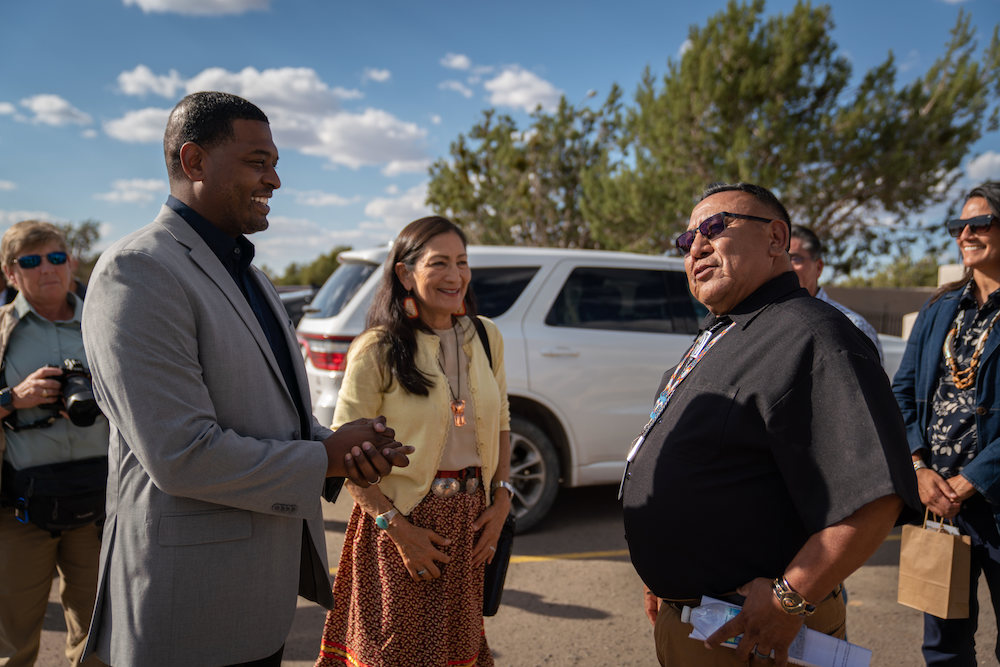
- Details
- By Tribal Business News Staff
- Energy | Environment
The Environmental Protection Agency announced $300 million in awards under its Climate Pollution Reduction Grants for Tribes and U.S. Territories program.
The agency selected 33 tribes and the Municipality of Saipan in the Commonwealth of the Northern Mariana Islands for awards ranging from $1.1 million to $24.2 million. The grants will support a range of projects from renewable energy initiatives to efforts in reducing air pollution, according to an EPA statement.
Based on estimates provided by all selected applicants, the proposed projects would cumulatively reduce greenhouse gas pollution by over 7 million metric tons of carbon dioxide by 2050, per the statement.
The $300 million marks one of the largest climate investments EPA has ever made in Tribal and territorial communities, according to EPA Administrator Michael S. Regan.
“The ambitious projects selected will deploy community-driven solutions to fight climate change and protect public health,” Regan said in a statement. “The Tribal and territory leaders selected today will fund innovative projects that improve air quality, deliver cleaner affordable electricity, and create economic and workforce opportunities that can be scaled up and replicated across Tribal lands and U.S. territories.”
Many of the projects will center on clean energy, including the Hopi Coal to Solar Transition, a bid to move the Hopi Reservation to renewable energy. Combined with other federal investments, the $20 million EPA award will support eventually electrifying 900 homes without electricity alongside economic and workforce development.
Similar work is occurring in the Passamaquoddy Tribe Indian Township, where their $7.4 million award will fund the first phase of a microgrid. During that initial stage, the township will install solar panels and battery storage on a range of residential and administrative buildings.
Other awards focused on transitioning tribal vehicle fleets to hybrid electric models, such as the $2.8 million award to the Seminole Tribe of Florida. Some of the awards supported agricultural and forestry forms, such as a $2.9 million award for the Snoqualmie Indian Tribe, who planned to rejuvenate local forests by planting native trees, thinning overstocked tree stands, and seeding carbon-absorbing vegetation.
The money continues the summer surge of EPA funding into renewable energy and climate resilience. Thursday’s award announcement follows $25.5 million in EPA awards to support climate resilience in tribal drinking water in August, a $34 million pollution reduction award to the Nez Perce tribe in July, and $2 billion across several federal programs announced in April.
Secretary of the Interior Deb Haaland said the awards would “enable Tribal communities to tackle the existential threat of climate change.”
“Today’s announcement builds on our work at the Interior Department to electrify Tribal homes, upgrade sanitation and irrigation systems on Tribal lands, and invest in climate resilience and adaptation measures that will serve these communities for generations to come,” Haaland said in a statement.
